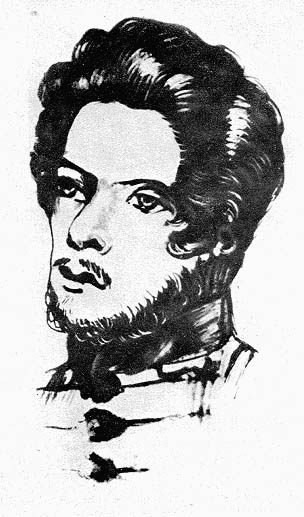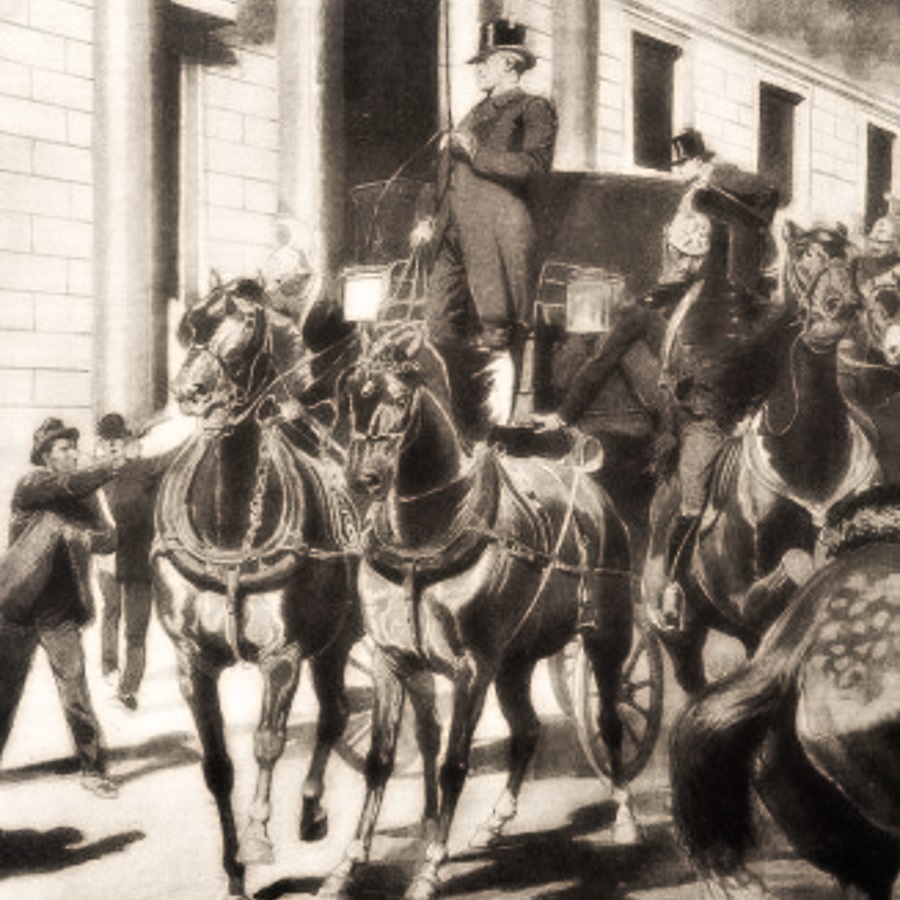natural, irrational, and very important.
Today is Pi Day! Pi Day is celebrated by math enthusiasts ( read - lonely shut-ins) around the world on March 14th. π was first used as a mathematical symbol in 1706 by William Jones.
Albert Einstein's parents conveniently arranged for him to be born on Pi Day in 1879.
March 14, 1940 -
The first of the seven Bob Hope, Bing Crosby and Dorothy Lamour "Road" films, The Road to Singapore, premiered in NYC on this date.
During a lunch break, Bob Hope threw a handful of the soap suds at Dorothy Lamour and soon Bing Crosby became involved. The fight ended when Lamour cornered Hope and Crosby and threw all she had at them. The director was not particularly pleased because it would take hours to repair their hair, makeup, and clothing.
March 14, 1957 -
A television adaption for Playhouse 90 of F. Scott Fitzgerald's unfinished last novel The Last Tycoon, (one of the 152 live TV dramas John Frankenheimer directed between 1952 and 1960) starring Jack Palance, Keenan Wynn, Viveca Lindfors, and Peter Lorre premiered on this date.
Fitzgerald’s unfinished Hollywood novel The Last Tycoon was scripted by Don M. Mankiewicz, who had grown up in the novel’s Hollywood setting; he was the son of Citizen Kane screenwriter Herman J. Mankiewicz.
March 14, 1968 -
The final episode of Batman, Minerva, Mayhem and Millionaires, starring Adam West and Burt Ward airs on the ABC TV on this date.
After ABC cancelled the series, the producers waited to see if anyone else would pick it up, then bulldozed the Batcave set when it appeared nobody would. Two weeks later, NBC offered to pick it up, unaware that the set had already been dismantled; unwilling to invest in the high cost of rebuilding the entire set, NBC ultimately declined to acquire the series.
March 14, 1969 -
The Walt Disney studio put the film, The Love Bug, starring 'Herbie,' a loveable Volkswagen bug with a personality, into general release on this date.
Dean Jones credits the film's success to the fact that it was the last live-action film that Walt Disney had authorized for production.
March 14, 1979 -
United Artists version of the Broadway anti-war musical Hair, directed by Miloš Forman, and starring Treat Williams, John Savage, Beverly D'Angelo, Nell Carter, Cheryl Barnes, Richard Bright, Ellen Foley and Charlotte Rae, premiered in Century City on this date.
George Lucas was offered the chance to direct this movie in the early 1970s. He turned it down because he was developing American Graffiti.
March 14, 2007 -
The comedy-action film, Hot Fuzz, directed by Edgar Wright, and starring Simon Pegg, Nick Frost, Timothy Dalton and Jim Broadbent, was shown at ShoWest on this date.
The filming of Angel and Skinner's first meeting at the supermarket was filmed over the course of two days. The conversation was filmed entirely from Timothy Dalton's perspective first. The next day, early in the morning, they were to film the conversation with Angel's perspective and close-ups. Dalton, much to the surprise of the crew, showed up early the next morning, and even though he wasn't going to be on camera for that particular portion of the filming, he sat off-camera in Skinner's chair and played the role so that Simon Pegg would be able to have him to work with while filming his part as Angel. Pegg stated it really showed Dalton's professionalism.
Just another day
Today in History:
March 14, 1794 -
Eli Whitney was granted a patent for the Cotton Gin on this date
While it is potable, gin flavored with juniper berries is still a better choice for a very dry martini.
March 14, 1883 -
History repeats itself, first as tragedy, second as farce.
Karl Marx died of pleurisy in London on this date. While his original grave had only a nondescript stone, the Communist Party of Great Britain erected a large tombstone, including a bust of Marx, in 1954.
His premature death prevented him from seeing the global impact of his progeny: Groucho, Harpo, Chico, Gummo and Zeppo. Karl Marx was born in Trier, Prussia May 5, 1818. He went to school at a time of severe repression. Pianos had to have skirts on for fear young men would become aroused by the sight of their bare legs. The Prussian government kept the teachers under police surveillance to make sure they wouldn't teach anything too radical like 2 + 2= 4 and so the students, including Marx, became extremely radical.
(There are no know photos of Karl and Gummo together: they never got along)
As a result of his beliefs, Marx was not able to get a job as a chicken inspector after he got his doctorate in philosophy. And without a job, he spent his time analyzing history and stealing tips left for waiters at the coffeehouses he frequented and came to the conclusion that all historical events were caused by economic forces.
He got involved in Communism - the belief that all private property should be abolished, men and women should not bathe or shave and pickled herring should be used as a cologne. Marx moved around Europe, writing for newspapers and pornographic pamphlet, studying, wanting to write a book about his economic ideas. But Marx was an obsessive researcher, and never knew when to stop reading and start writing. He only became productive after he met Friedrich Engels, a socialist who was also wealthy—the heir to a textile business and primitive whoopee cushion novelty item.
Their main theory was that the economic system was a perpetual conflict between those who controlled the capital and those who provided the labor, that the conflict would never be resolved peacefully, that in a free market, workers would continue periodically to lose their jobs, their standard of living would fall, and this would inevitably lead to violent revolution. He believed that giant corporations would dominate the world's industries, that globalism in trade would make markets even more unstable. He also believed that you could hard boil an egg by holding it under one's armpit for a week thus saving money by not paying the gas bill.
Marx and Engels published their Communist Manifesto and What the Butler Saw Whilst Polishing the Knob in 1848, and revolution did break out afterward in France, Italy, and Austria. Marx's newspaper was shut down. He had to flee the country. He moved to London, worked for years on his last book, Das Kapital. His family in poverty, Marx said, "I don't suppose anyone has ever written about 'money' when so short of the stuff." A spy from Prussia was keeping tabs on him and wrote, "Washing, grooming and changing his clothes are things he does rarely. He does not shave at all. But he does have an unnatural obsession watching Amenian women clip their toenails!"
He fed his family on bread and potatoes, and when one of his children died, his wife had to borrow money from a neighbor to buy a coffin.
When Marx died in 1883, only 11 persons came to his funeral. And they were all charged a mourners tax!
March 14, 1889 -
German Ferdinand von Zeppelin was issued a US Patent (#621,195) for his Navigable Balloon on this date.
He did not speak with Paul von Hindenburg about it at the time.
March 14, 1912 -
A young anarchist, Antonio Dalba, shot at King Victor Emmanuel III and queen Elena (of Montenegro) of Italy on this date, but missed, hitting a bodyguard and his horse instead. Their majesties were attending the annual memorial service for the previous king, Umberto I, who was assassinated by an anarchist in 1900 (whose assassination inspired Leon Czolgosz to shoot President McKinley).
Since Dalba was a legal minor (20) at the time, he could not be executed. He was sentenced to 30 years imprisonment, but, perhaps because of his increasing mental instability, was pardoned in 1921, only to be committed two months later to a mental hospital, where he died in 1953.
Today on March 14 1932, one of the greatest notes was written:
George Eastman, the founder of Kodak Corporation, killed himself after a long illness on this date.
His suicide note states "To my friends: My work is done. Why wait?"
All in all, terse but to the point.
March 14, 1942 -
Mrs. Anne Miller was near death at New Haven Hospital, suffering from a streptococcal infection, before doctors Orvan Hess and John Bumsfield decided to use an experimental treatment - Penicillin, on this date. This was the first time penicillin was successfully used to treat a patient.
Although Dr. Alexander Fleming had proven that penicillin was an effective antibacterial in 1928, few doctors seemed interested in using the common mold as a medicinal tool. Supplies were limited at the time, nearly half of the total supply produced were used on Mrs. Miller. She survived, living to be 90 years old and penicillin became widely used.
As I am deathly allergic to the drug, this medical advancement is almost meaningless to me.
And so it goes.
680



.jpg/220px-Friedrich_Engels_(1891).jpg)




No comments:
Post a Comment